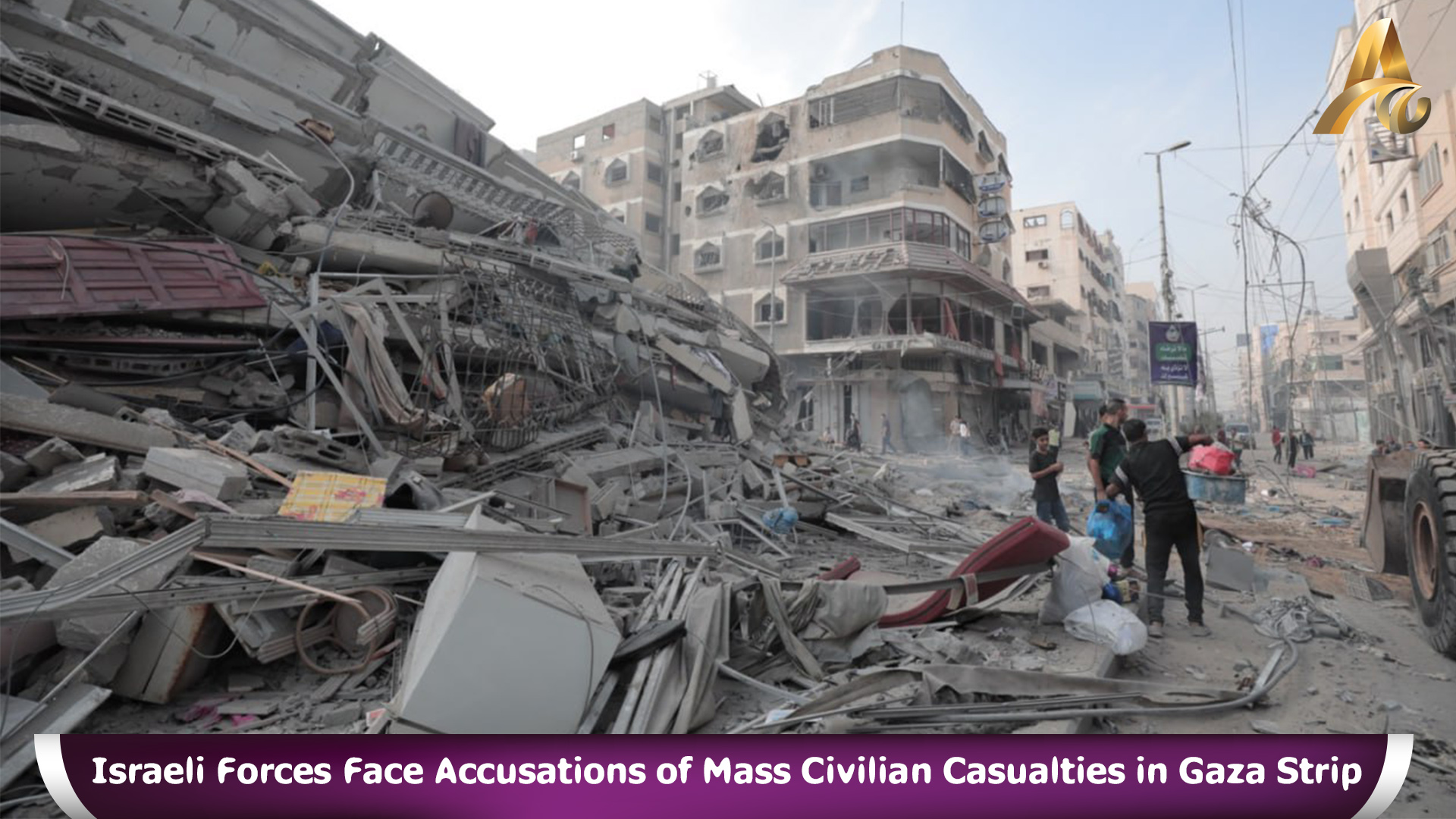Palestinian: Israeli forces are facing allegations of mass civilian casualties in the Gaza Strip, with accusations of retaliation against Palestinian armed factions. Euro-Med Human Rights Monitor has released a statement, asserting that Israeli actions could potentially amount to collective punishment and a violation of international humanitarian law.
During recent events, Israeli armed forces have come under intense scrutiny for their actions in the Gaza Strip. Euro-Med Human Rights Monitor has voiced concerns over the alleged mass killings of civilians, suggesting that these actions may represent collective punishment and a breach of international humanitarian law.
As tensions in the region continue to escalate, the international community is closely monitoring the situation and calling for a peaceful resolution to the conflict.
During a single night, Israeli armed forces were reported to have caused the deaths of approximately 70 children within their own homes. The use of highly destructive weaponry in residential areas has resulted in numerous casualties among civilians, including children, as residential buildings collapsed on their inhabitants.
The Israeli Cabinet approved a declaration of war in response to Hamas' armed attack, named "Operation Al-Aqsa Flood," which had led to the deaths of approximately 700 Israelis and the capture of hundreds more.
Israeli military operations escalated with hundreds of airstrikes against residential neighborhoods and multi-story inhabited buildings. Preliminary data from Euro-Med Monitor suggests that 30 residential buildings collapsed, trapping civilians inside. These airstrikes have devastated around 18 Gazan families.
The Palestinian Ministry of Health in Gaza has reported a death toll of 687, including 140 children and 105 women, with over 3,726 others injured. Additionally, Euro-Med Monitor estimates that approximately 500 housing units have been completely destroyed, with another 2,400 partially damaged.
There are concerns that Israel may be using thermobaric weaponry, known as vacuum bombs, which have devastating effects on nearby residents. Some unverified testimonies suggest the use of white phosphorus munitions in southern Gaza Strip areas.
The ongoing conflict has resulted in the displacement of more than 40,000 families, with about 74,000 people seeking refuge in 64 UNRWA schools and shelters in the Gaza Strip. Shockingly, even a UNRWA school housing over 225 people was targeted in an airstrike.
The Israeli Air Force has reportedly dropped over a thousand tons of bombs on Gaza since the start of the attack, with naval forces participating in the bombing near the Gaza coast.
While Israeli forces claim to issue warnings via phone calls, text messages, or limited-destructive drone missiles, critics argue that these actions are insufficient in protecting Palestinian civilians. Mass killings and the burying of residents beneath the rubble of their homes raise concerns about the disregard for the principles of necessity and proportionality.
Euro-Med Monitor accuses Israeli forces of deliberately targeting civilian objects, potentially constituting war crimes under international humanitarian law and the Geneva Conventions. The policy of targeting and demolishing civilian homes is seen as collective punishment, violating international humanitarian law.
As tensions escalate in the Gaza Strip, the international community is closely monitoring the situation, and calls for a peaceful resolution to the conflict continue to mount.






















